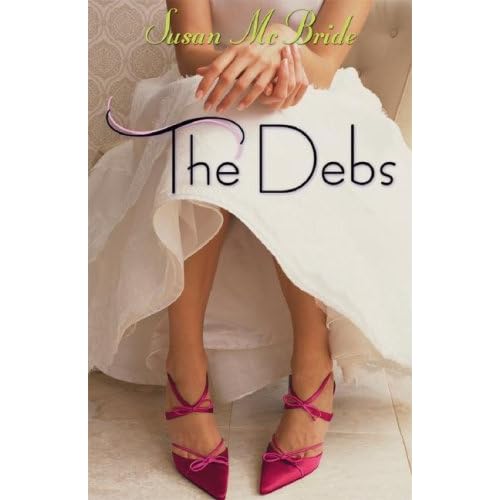I
disagree passionately with Orson Scott Card
on politics, and his religion makes me really uncomfortable (feel free to Google away).
But I love a good story, and there's no denying that Card is a great story teller. I've also heard that he's a fabulous teacher of writing, which I also appreciate.
Unfortunately, I disagree that all of his stories are great, or even good. I loved
ENDER'S GAME as a child and still later when I was older. I also lost myself in
SONGMASTER,
WYRMS, and other stories. I've read a
lot of Orson Scott Card's work, and I hope to read more.
I am not a purist who thinks Card should never have dipped into Ender's world again after the first novel; I really enjoyed
XENOCIDE and the
Shadow series.
But as the original Ender series progressed, I felt that the novels increasingly were little bits of story disrupted my long sermons (CHILDREN OF THE MIND). And
ENDER IN EXILE was definitely more of the same.
More simply,
what he said. Or even
these folks.
Card writes an interesting Afterward to ENDER IN EXILE, addressing discrepancies between various stories set in Ender's universe (including between the new novel and ENDER'S GAME itself, whose timelines overlap) but I am not a scholar of The "Enderverse," nor have I reread any of its novels recently. I was, however, annoyed by discrepancies within
Exile itself, like the one in which readers get a long explanation of the procedure by which starship crew members can join the colonies of any world to which they travel, then a few chapters later we are treated to two attempts to create just the system we have been told already exists!
Several things are explained repeatedly. Though I get that we Americans are lazy and like to be told things very, very clearly, I still got a little bored with the repetition.
But I've written a few . . . let's call them novel-length manuscripts for now; I know that these things happen and am much more sympathetic than I used to be. As a reader, repetition and minor inconsistencies don't make me close the cover.
What bothers me more are the lengthy sermons when nothing's really happening: not plot development, not significant character development (we know many of these characters and have been taught that they do not change. we are who we are from birth or even before, since we are - basically - our biological parents!).
I get that the Wiggins family are very very smart. I just wish there were some way to show us this without spending paragraph after paragraph explaining exactly why they said each thing they said, what factored into their decisions, how they expected to be heard, predicted a response, and . . . so forth and so on. That really tends to slow down a scene.
I also get that Card himself is smart - and knows it. For example, check out this blurb he wrote for Brandon Sanderson's
Mistborn trilogy, which reads as much like a praise of Card as of Sanderson. "It's rare for a fiction writer to have much understanding of how leadership works and how love really takes root in the human heart. Sanderson is astonishingly wise." (Note: I enjoy
Sanderson's blog/essays as well as his fiction, and appreciate the way he insists on putting story first, rather than moralizing/teaching.)
I was going to say something next about all the heavy-handed moralizing in ENDER IN EXILE, but if I do that I'll never finish this post. Instead I recommend the 1-star reviews on Amazon.com (linked above) for the interested. (OK, one example. In a conversation with his assistant, a biologist says, "Monogamy has been proven, over and over, to be the optimum social arrangement." P. 104. There's a lot of that.)
And then there's the thing with idealizing children. Children can be excellent at seeing through people. I was much better at that as a child than I am now, and I still remember the power of that feeling, and my frustration that others didn't seem to see what was - to me - obvious. But children are not built like adults; their brains are still developing. Particularly the
frontal lobe and all that nifty executive processing stuff. One effect of this is the way that children tend NOT to think as many steps into the future, tend not to consider all the possible ramifications of their actions, tend to
react frequently. But not Card's kids.
Card's kids spend pages and pages and pages anticipating any possible results from their conceived actions. An ordinary (read: not "Battle School material") girl walking up a gangway might take a couple of pages of thinking to come to some conclusions that readers reached, oh, several chapters ago. So I'm reading along as fast as I can, considering pulling out my eyelashes as I go in order to distract myself until something new happens.
Children can be smarter than adults, and it's often a great benefit for them to be so in young adult fiction. Or whenever they're main characters. But there's a line beyond which I don't buy it. Adults can be dismissive and blind. Kids can be insightful. But kids rarely sound like little philosophers. Scenes like those I describe above take me out of the story and make me feel like I'm hearing the author's voice, not the character's.
And there's also the early marriage/sex thing. Looking over his body of work, Card definitely seems to like to get his characters together very early. Have you read the
Homecoming books? Two main characters, the most idealized couple, Luet and Nafai, are 13 and 14 when they agree to marry, if I recall correctly. (The guy is almost always older.)
After they marry, characters tend to become immediately happy and surprisingly mature, which is lovely but hard to believe. (As I've frequently remarked, this sort of thinking - that marriage and/or sex is something of a panacea - is one of my least favorite things about lots of romance novels.)
I think of adolescence as a time when kids are growing up, separating from their parents and figuring out who they are apart from their families, crystallizing into the adults they'll become. But are not yet. I know that I'm not alone in thinking this way. I've been a teenager, I've known lots of teenagers, sure. But I've also read some biology, psychology, and child development books. I've also seen the statistics for the survival of teen marriages and the health of babies born to teen mothers.
I think adult writing about kids is best when kids are reflected honestly and well - without infantilizing or condescending to them, but without making the children themselves unnaturally aware of their own development. And, most of all, when SHOWING the reader all of this, rather than TELLING us.
Given Card's predilection for marrying off his fictional creations so early, it's not a huge stretch to suppose that one of his teenage characters - happily married and pregnant a few months after saying the following - was speaking for Card when she said:
"Back on Earth, people married later and later. And had sex earlier and earlier. It was wrong to divide them, I know, but who can say which direction was wrong? Maybe the biology of our bodies is wiser than all the reasons for waiting to marry. Maybe our bodies want to raise children when we're still young enough to keep up with them." (P. 211)
I am so glad I didn't marry the guy I was dating at 14. The idea makes me a little sick to my stomach. For that matter, I'm glad I didn't marry the guy I was dating at 19. I am not unintelligent. I have great parents, a very supportive family of origin. But I was still not fully mature and ready to make life partnership decisions as a teenager! Moreover, I was not ready to be a parent. Shockingly enough, at an ancient 34, I am still able to keep up with my children. Again, I'm hardly unique.
The role of women is another interesting thing. There are self-sacrificing male characters, to be sure. And a few women who are successful soldiers. But MOST of the characters are male, including most of the military and civilian leadership, most of the soldiers, most of the students at Battle School.
And women . . . sacrifice a lot. Ender's sister, Valentine, decided as a young teenager to leave her entire life behind and follow her little brother, supporting him in his travels. In teenage Ender's words, "Valentine is a paragon of selflessness and love." (P. 302)
Or they're Eves, succumbing to temptation and leading others to do likewise, like Afraima the non-brilliant Jewish exobiologist with designs on her brilliant boss on planet Shakespeare. Or like Virlomi, the Battle School graduate who returned to India and became a great leader of her people . . . until she began to think herself a goddess and got a lot of them massacred. Sometimes women are both self-sacrificing and temptresses, in turns. In suggesting an affair with her boss, the biologist says:
"Don't be stupid. As soon as I'm having babies, I'll get fat and unattractive and way too busy to come here to help. Child production is everything, right?" (P. 105)
Women do need to marry and have babies, and probably give up their careers to raise the children. (And not just on colony worlds with too few women, like Shakespeare.)
Eh.
Card's a great storyteller. But I prefer it when he sticks to the stories, rather than the moralizing and sermonizing. And I'll always be uncomfortable with the roles of women (and marriage) in many of his stories, especially in the Ender universe.
 Let's say you've got a lovely thing. A stamped concrete patio, perhaps, or a hand knit afghan, or a wall painted with an attractive faux finish. It looks nice all by itself, but maybe it could be better. Maybe it's even lovelier if it's got a border around it in a complimentary color. And maybe the whole takes on layers of added interest when that same color is repeated in a simple pattern across the piece.
Let's say you've got a lovely thing. A stamped concrete patio, perhaps, or a hand knit afghan, or a wall painted with an attractive faux finish. It looks nice all by itself, but maybe it could be better. Maybe it's even lovelier if it's got a border around it in a complimentary color. And maybe the whole takes on layers of added interest when that same color is repeated in a simple pattern across the piece.





.jpg)







































 Welcome to
Welcome to 



